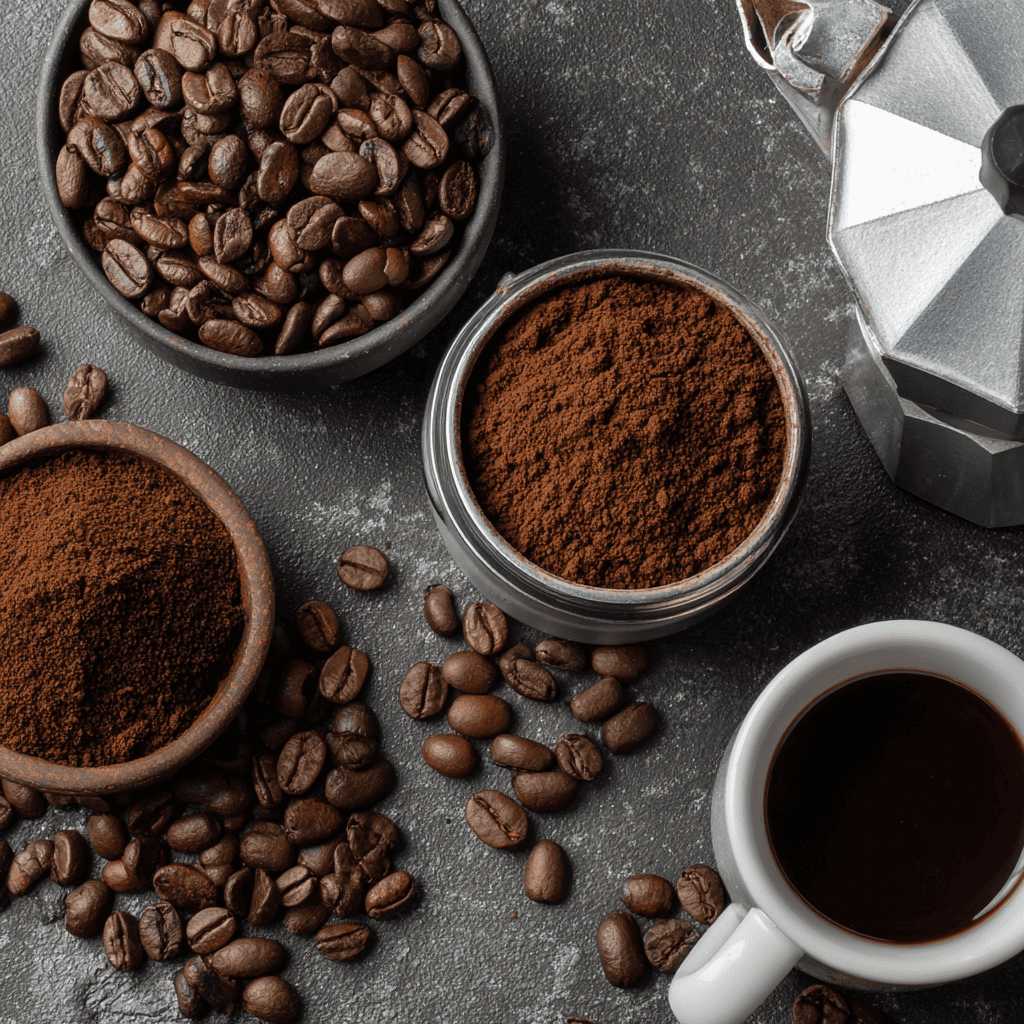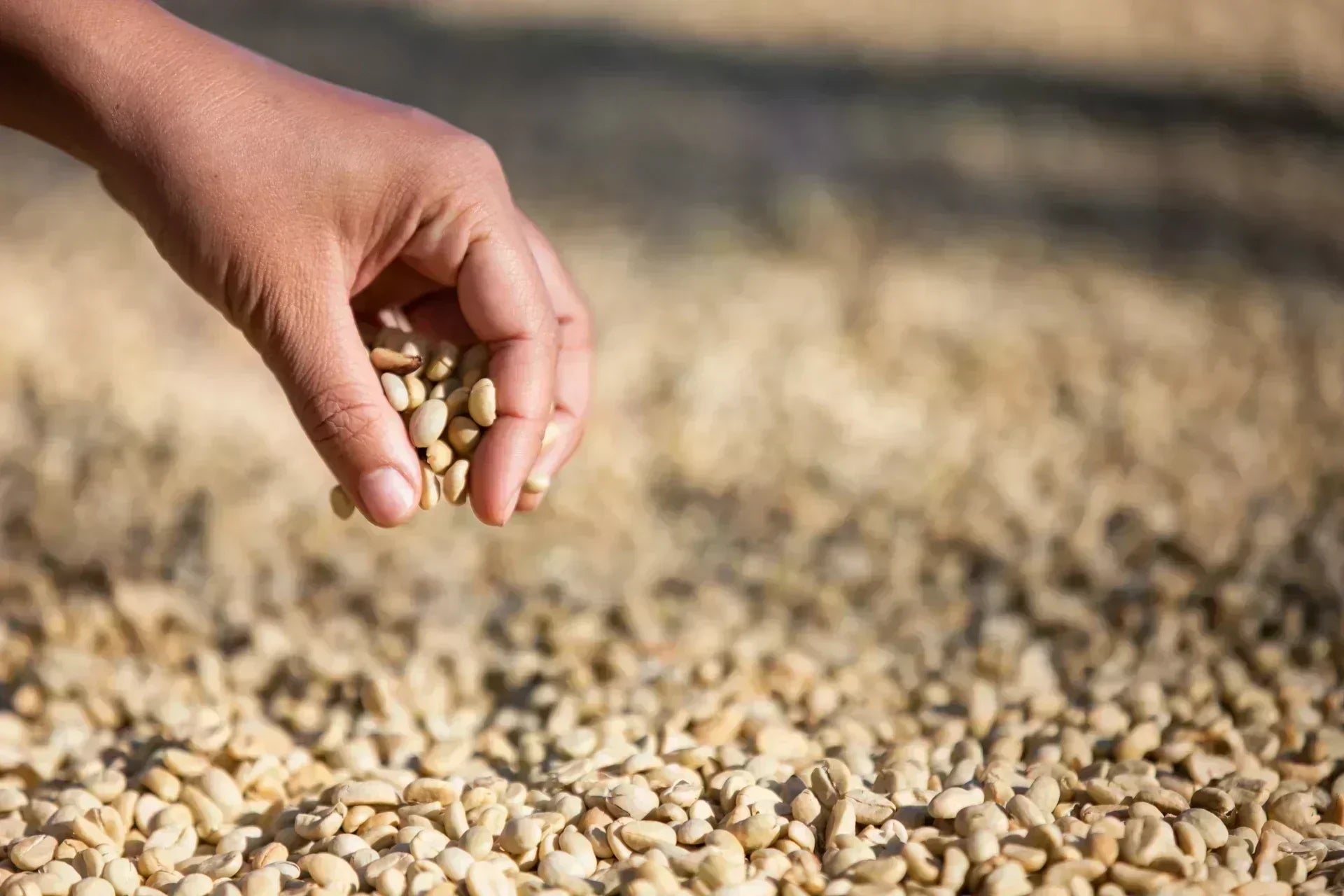Choosing between coffee beans and ground coffee is one of those decisions that seem small, but completely change the experience in your cup. If you’ve ever felt that your coffee at home “doesn’t taste the same” as in a café, the secret is probably in this detail.
In this guide we’ll calmly analyze the differences, from freshness and flavor to convenience and storage, so you can discover which option is best for you.
1. The journey of the bean: from the farm to your cup
Before talking about beans vs ground, it’s important to understand something: coffee is a fruit. After being harvested, fermented, dried, and roasted, it reaches the perfect point to release all its aroma… but only if you treat it well.
-
Beans: coffee maintains its natural form after roasting. The essential oils remain protected inside the bean, ready to be released when ground just before brewing.
-
Ground: those same oils come into direct contact with oxygen. The result: in just a few hours it loses intensity, and in a few days it no longer offers the same aromatic quality.
Here’s the first big truth: coffee starts to age the moment you grind it.
2. Freshness and aroma: why it matters so much
Imagine opening a bag of freshly ground coffee: the aroma is intense, almost intoxicating. However, if you leave it open for a week, that aroma disappears. Why?
-
Oxidation: coffee’s aromatic compounds are very volatile.
-
Humidity: coffee easily absorbs odors and moisture from the environment.
-
Time: each passing day, it loses complexity.
That’s why professional baristas almost never work with pre-ground coffee. They always prefer whole beans.
Conclusion: if you want an experience similar to a specialty coffee shop, whole beans are the clear choice.
3. Convenience and lifestyle
This is where many hesitate. Not all of us have the time or desire to grind coffee every morning.
-
Ground coffee
-
Perfect for those who want speed: open, serve, and you’re done.
-
Ideal for offices, shared homes, or people who don’t want extra accessories.
-
-
Coffee beans
-
Requires a grinder (manual or electric).
-
Adds an extra minute to the ritual, but in return you enjoy a fresher, more personalized cup.
-
It’s not about better or worse, but about what suits you.
4. Grind control: the detail that changes the flavor
Grind size determines how flavors are extracted.
-
If you grind too fine for a moka, the coffee may come out bitter.
-
If you grind too coarse, the flavor will be watery.
With ground coffee, you lose that control. With beans, you adjust each time depending on your coffee maker:
-
Italian moka: medium-fine grind.
-
Espresso: very fine grind.
-
French press: coarse grind.
That freedom makes beans a much more versatile choice.
5. Price and medium-term value
A common misconception is that coffee beans are more expensive. The truth:
-
They usually have very similar prices per kilo.
-
Beans keep better, so you get more cups with good flavor.
-
Ground coffee may seem convenient, but if you forget it open, in just a few days you’ll lose part of what you paid for: aroma and freshness.
In the long run, coffee beans offer the best quality-price ratio.
6. Storage: tips to extend its life
Whether beans or ground, there are ways to take care of your coffee:
-
Store it in an airtight, opaque container.
-
Avoid the fridge: humidity ruins coffee.
-
Buy quantities you’ll consume in 3–4 weeks, no more.
-
If beans, grind only what you’ll use at the moment.
7. Coffee and ritual: more than a drink
Here’s what many forget: making coffee isn’t just about hydration, it’s a ritual. The simple act of grinding the beans, listening to the moka rise, and smelling the first steam is part of the experience.
That extra minute becomes a personal moment, a pause in the day. And for many, that’s priceless.
8. Frequently Asked Questions (FAQ)
Is ground coffee always lower quality?
Not necessarily. There are ground coffees of excellent origin and roast. The problem isn’t the initial quality, but the rapid loss of freshness.
Can I grind coffee at home without a grinder?
Yes, with a blender or even a mortar, though you won’t have the same control. A basic electric grinder already makes a big difference.
Do coffee beans last forever?
No. Even though they last longer than ground coffee, it’s best to consume them within 2–3 months of roasting to keep their best profile.
9. So… which one to choose?
-
Choose ground coffee if you prioritize speed, absolute convenience, and don’t want accessories.
-
Choose coffee beans if you enjoy the ritual, want maximum freshness, and prefer to control the flavor.
At La Boutique Di God, we believe that coffee is something to be lived, not just drunk. That’s why we offer both options, so you can decide how to enjoy it every day.
Explore our coffee collection here and find your ideal format: beans if you’re looking for total freshness, or ground if you prefer convenience without giving up flavor.






Share:
Coffee with honey: the natural sweetener that transforms your cup into a healthy and gourmet experience.
How to Store Coffee Beans for Maximum Freshness (Mistakes 90% of People Make)